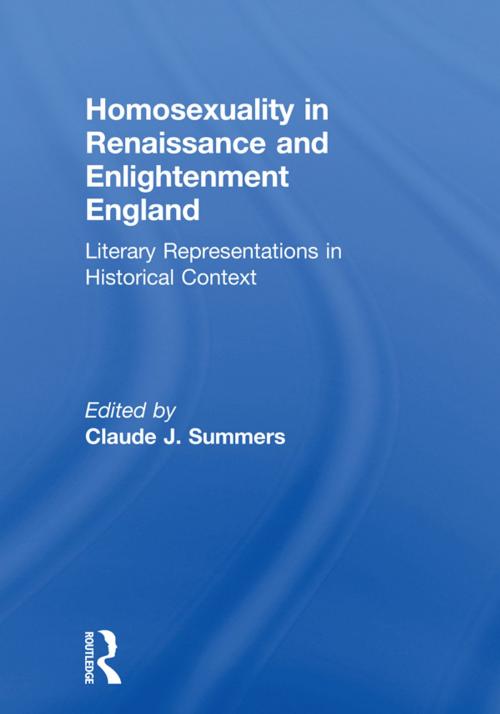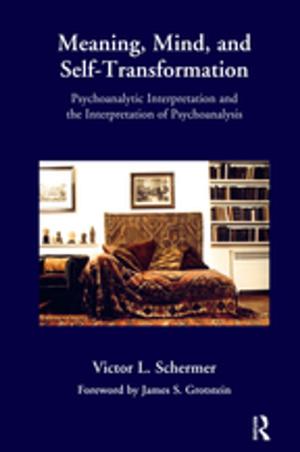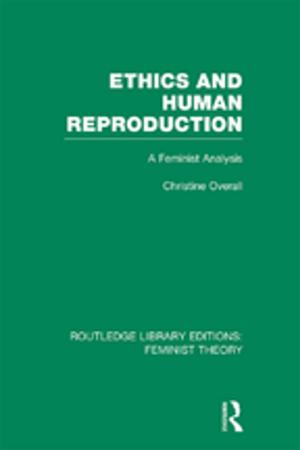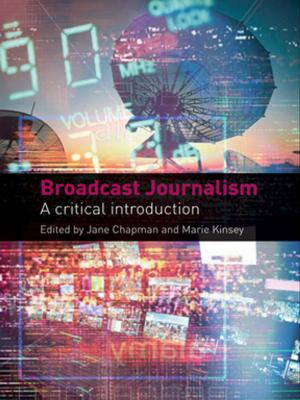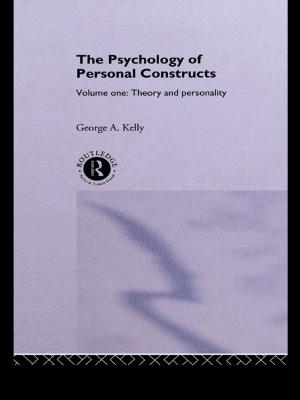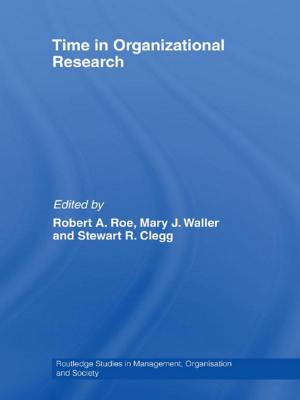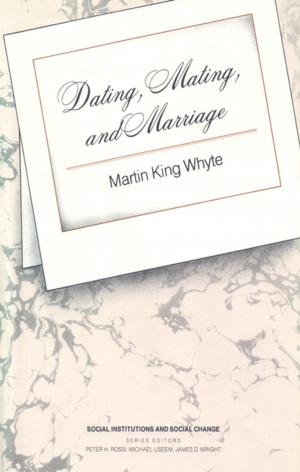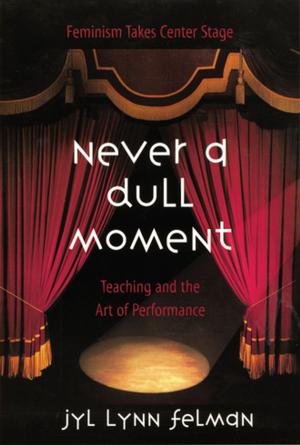Homosexuality in Renaissance and Enlightenment England
Literary Representations in Historical Context
Fiction & Literature, LGBT, Gay, Nonfiction, History| Author: | Claude J Summers | ISBN: | 9781317972259 |
| Publisher: | Taylor and Francis | Publication: | November 26, 2013 |
| Imprint: | Routledge | Language: | English |
| Author: | Claude J Summers |
| ISBN: | 9781317972259 |
| Publisher: | Taylor and Francis |
| Publication: | November 26, 2013 |
| Imprint: | Routledge |
| Language: | English |
This new book significantly contributes to an increased understanding of the gay and lesbian experience as it illuminates important works of literature and clarifies the status of same-sex desire in English literature from 1500--1760. Homosexual themes can be found throughout the literature of the English Renaissance and Enlightenment, but only rarely are they direct and unambiguous. The essays here are engaged in a vital and necessary process of re-historicizing and re-contextualizing literature. Utilizing a variety of critical methods and proceeding from several different theoretical and ideological presuppositions, these essays raise important questions about the methodology of gay studies, about the conception of same-sex desire, about the depiction of homoerotics, and about the relationship of sexuality and textuality, even as they shed new light on the homosexual import of a number of significant works of literature.
Among the authors studied are Christopher Marlowe, William Shakespeare, John Donne, Lady Mary Wroth, Katherine Philips, Aphra Behn, John Cleland, and Thomas Gray. The collection attests both the current intellectual ferment in gay studies and the richness of English Renaissance and eighteenth-century literary representations of homosexuality.
Homosexuality in Renaissance and Enlightenment England provides numerous insights into important works of literature and into significant theoretical issues implicit in the process of discerning and defining homosexuality in texts of earlier ages. All the contributors locate their texts in carefully delineated cultural and historical milieux. But they are not unduly constrained by either the tyranny of theory or the anxieties of anachronism. Rather than proceeding from hidebound or fashionably current ideologies, they sift the texts they study for the concrete evidence from which theories of sexuality might be constructed or modified. Hence, the collection will be valuable both for its practical criticism and for its theoretical contributions. It vividly illustrates the variety of gay studies in literature, especially as applied to works of earlier ages.
This new book significantly contributes to an increased understanding of the gay and lesbian experience as it illuminates important works of literature and clarifies the status of same-sex desire in English literature from 1500--1760. Homosexual themes can be found throughout the literature of the English Renaissance and Enlightenment, but only rarely are they direct and unambiguous. The essays here are engaged in a vital and necessary process of re-historicizing and re-contextualizing literature. Utilizing a variety of critical methods and proceeding from several different theoretical and ideological presuppositions, these essays raise important questions about the methodology of gay studies, about the conception of same-sex desire, about the depiction of homoerotics, and about the relationship of sexuality and textuality, even as they shed new light on the homosexual import of a number of significant works of literature.
Among the authors studied are Christopher Marlowe, William Shakespeare, John Donne, Lady Mary Wroth, Katherine Philips, Aphra Behn, John Cleland, and Thomas Gray. The collection attests both the current intellectual ferment in gay studies and the richness of English Renaissance and eighteenth-century literary representations of homosexuality.
Homosexuality in Renaissance and Enlightenment England provides numerous insights into important works of literature and into significant theoretical issues implicit in the process of discerning and defining homosexuality in texts of earlier ages. All the contributors locate their texts in carefully delineated cultural and historical milieux. But they are not unduly constrained by either the tyranny of theory or the anxieties of anachronism. Rather than proceeding from hidebound or fashionably current ideologies, they sift the texts they study for the concrete evidence from which theories of sexuality might be constructed or modified. Hence, the collection will be valuable both for its practical criticism and for its theoretical contributions. It vividly illustrates the variety of gay studies in literature, especially as applied to works of earlier ages.
